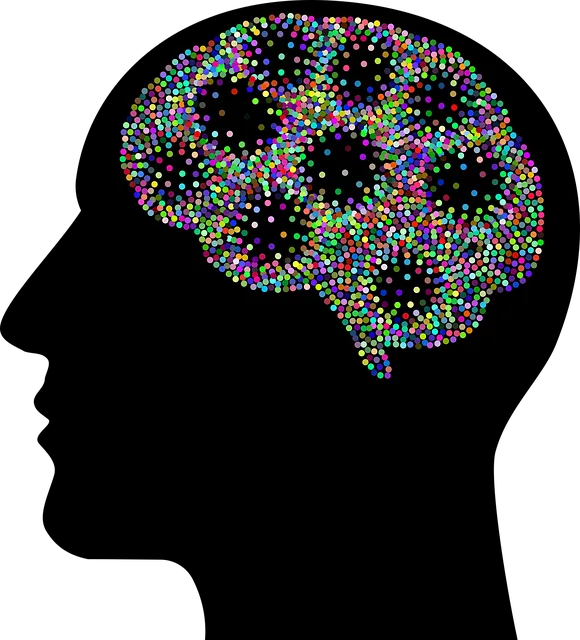Mastering Emotion Regulation with Littleton Kaiser Permanente’s Guidance
Emotion regulation is a critical life skill that enhances mental balance, resilience, and well-being…….
In the realm of healthcare, particularly within the mental health sector, the concept of accessible and comprehensive care is a paramount concern. The ‘Littleton Kaiser Permanente Mental Health Services Number’ represents a unique initiative aimed at revolutionizing how communities address their psychological well-being. This article delves into the intricate details of this program, exploring its definition, impact, and role in shaping global mental healthcare practices. By examining various facets, from its historical foundations to technological integrations, we aim to provide an insightful guide for both professionals and individuals seeking understanding.
The ‘Littleton Kaiser Permanente Mental Health Services Number’ (hereafter referred to as the ‘Program’) is a comprehensive mental health support system implemented by Kaiser Permanente, a leading healthcare provider in the United States. It involves a multi-faceted approach, encompassing:
The Program’s inception can be traced back to the recognition of growing mental health challenges within communities, especially in areas with limited resources. Kaiser Permanente, driven by its mission to improve healthcare outcomes, developed this initiative as a response to:
The Program’s success in Littleton, Colorado, has since inspired replication in various regions, highlighting its potential to transform mental healthcare delivery.
The ‘Littleton Kaiser Permanente Mental Health Services Number’ has transcended geographical boundaries, gaining recognition worldwide for its innovative approach. Key trends shaping its global impact include:
While the Program’s core principles remain consistent, its implementation varies across regions, influenced by local cultural, economic, and political factors:
| Region | Challenges | Adaptations |
|---|---|---|
| North America | High costs of mental health services and insurance coverage issues. | Strong community partnerships and government funding initiatives. |
| Europe | Diverse healthcare systems and varying levels of mental health awareness. | Integration with primary care and cultural sensitivity training for professionals. |
| Asia-Pacific | Stigma surrounding mental health and limited resources in rural areas. | Community-based programs and mobile health solutions. |
| Middle East | Limited mental health infrastructure and conservative cultural norms. | Confidential online counseling and increasing government support. |
The mental health services sector has experienced significant growth, driven by rising demand and increased recognition of mental well-being as a vital component of overall healthcare. The ‘Littleton Kaiser Permanente Mental Health Services Number’ operates within this dynamic market, attracting investments from:
The Program’s economic influence is multifaceted:
Technology plays a pivotal role in modernizing mental healthcare, and the ‘Littleton Kaiser Permanente Mental Health Services Number’ has embraced several innovations:
Technological advancements have enhanced accessibility, convenience, and personalization in mental health care:
In the future, further integration of these technologies could lead to:
The ‘Littleton Kaiser Permanente Mental Health Services Number’ operates within a complex web of policies and regulations designed to protect patient rights and ensure quality care:
These policies have a direct influence on the Program’s design and implementation:
Despite its successes, the ‘Littleton Kaiser Permanente Mental Health Services Number’ faces several challenges:
Addressing these challenges requires a multi-faceted approach:
In a densely populated urban setting, the Program implemented an innovative community outreach strategy. By partnering with local schools, community centers, and faith-based organizations, they hosted informational sessions, workshops, and peer support groups. This approach led to:
A remote rural county adopted the Program’s telehealth model, providing access to mental health services via video conferencing and mobile apps. This strategy resulted in:
A trial was conducted using an AI-powered therapy chatbot for adolescents with mild to moderate anxiety disorders. The results were promising:
The ‘Littleton Kaiser Permanente Mental Health Services Number’ continues to evolve, guided by emerging trends:
To capitalize on these trends and ensure sustained success:
The ‘Littleton Kaiser Permanente Mental Health Services Number’ stands as a testament to the transformative potential of comprehensive mental health care. Its impact transcends geographical boundaries, offering valuable insights into improving mental healthcare systems worldwide. By embracing technological advancements, fostering community engagement, and navigating policy landscapes, this Program exemplifies a modern approach to addressing mental health challenges.
As we move forward, the integration of AI, telehealth, and digital therapeutic interventions will shape the future of mental healthcare, building upon the foundations laid by initiatives like this one. The ongoing evolution of these services underscores the importance of continuous innovation, cultural sensitivity, and community collaboration in ensuring accessible, high-quality mental health care for all.
Q: How does the Program address the stigma associated with mental health issues?
A: Through public awareness campaigns, educational programs, and peer support groups, the Program aims to normalize conversations about mental health. By fostering an environment of understanding and acceptance, it encourages individuals to seek help without fear of judgment.
Q: Can you explain the role of technology in the Program’s success?
A: Technology plays a dual role. Telehealth and digital tools increase accessibility, allowing people to access care remotely. Additionally, AI and VR enhance therapy sessions, providing personalized and engaging experiences that improve treatment outcomes.
Q: How does the Program ensure cultural sensitivity?
A: Cultural adaptability is a key strength. The Program tailors its services to resonate with diverse communities, ensuring that programs are relevant and acceptable to various cultural groups. This approach promotes trust and engagement, leading to better participation and outcomes.
Q: Are there any challenges in implementing the Program at a large scale?
A: Yes, challenges include ensuring equal access despite geographical disparities, addressing digital divides, and maintaining quality standards as the program expands. However, strategic partnerships with local communities and governmental bodies help mitigate these issues.
Q: What is the long-term impact of such initiatives on society?
A: In the long term, widespread adoption of comprehensive mental health services can lead to healthier, more resilient communities. Reduced mental health burdens can result in increased productivity, improved social cohesion, and enhanced overall quality of life for individuals and families.

Emotion regulation is a critical life skill that enhances mental balance, resilience, and well-being…….